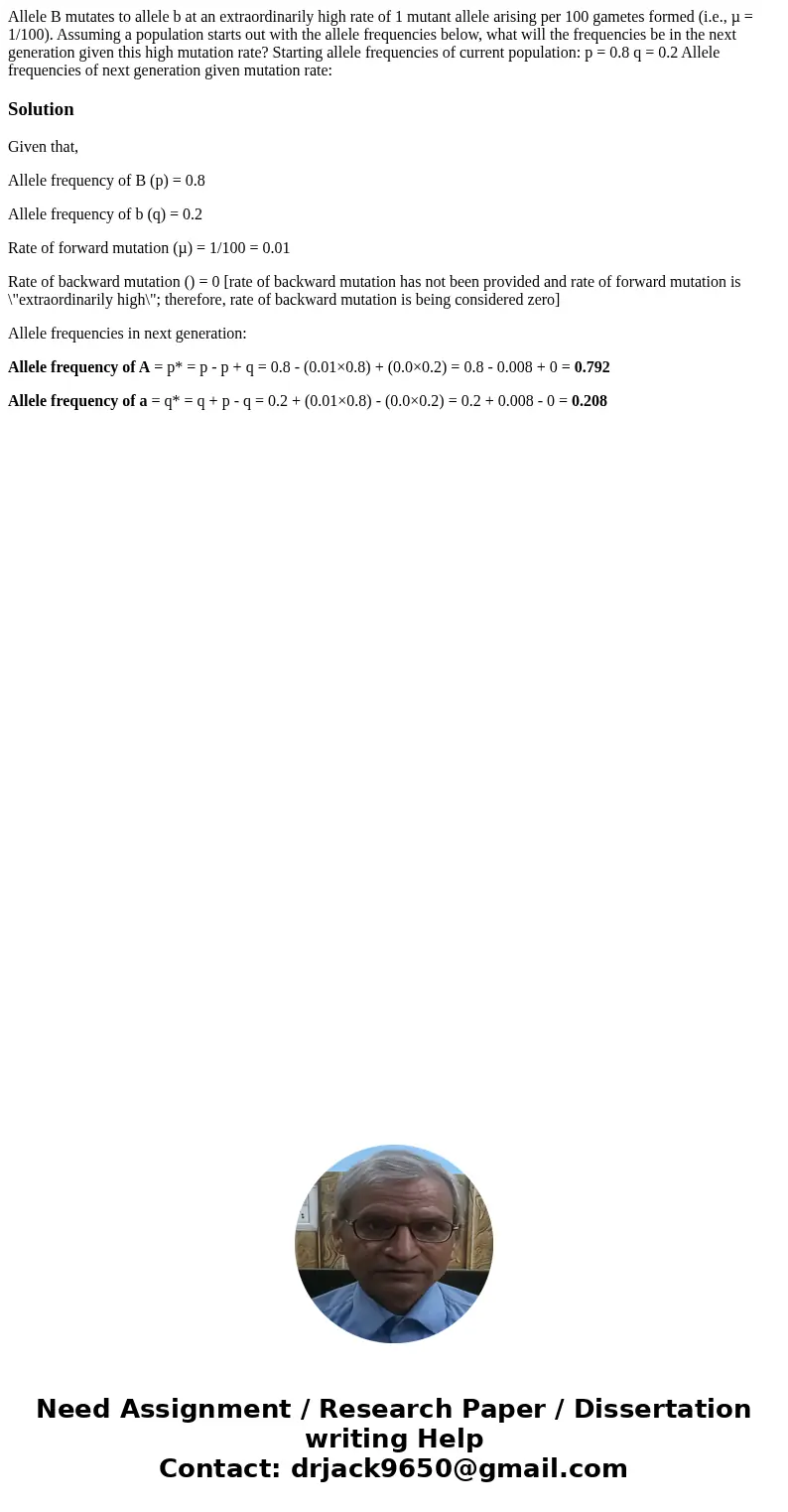Allele B mutates to allele b at an extraordinarily high rate
Allele B mutates to allele b at an extraordinarily high rate of 1 mutant allele arising per 100 gametes formed (i.e., µ = 1/100). Assuming a population starts out with the allele frequencies below, what will the frequencies be in the next generation given this high mutation rate? Starting allele frequencies of current population: p = 0.8 q = 0.2 Allele frequencies of next generation given mutation rate:
Solution
Given that,
Allele frequency of B (p) = 0.8
Allele frequency of b (q) = 0.2
Rate of forward mutation (µ) = 1/100 = 0.01
Rate of backward mutation () = 0 [rate of backward mutation has not been provided and rate of forward mutation is \"extraordinarily high\"; therefore, rate of backward mutation is being considered zero]
Allele frequencies in next generation:
Allele frequency of A = p* = p - p + q = 0.8 - (0.01×0.8) + (0.0×0.2) = 0.8 - 0.008 + 0 = 0.792
Allele frequency of a = q* = q + p - q = 0.2 + (0.01×0.8) - (0.0×0.2) = 0.2 + 0.008 - 0 = 0.208

 Homework Sourse
Homework Sourse